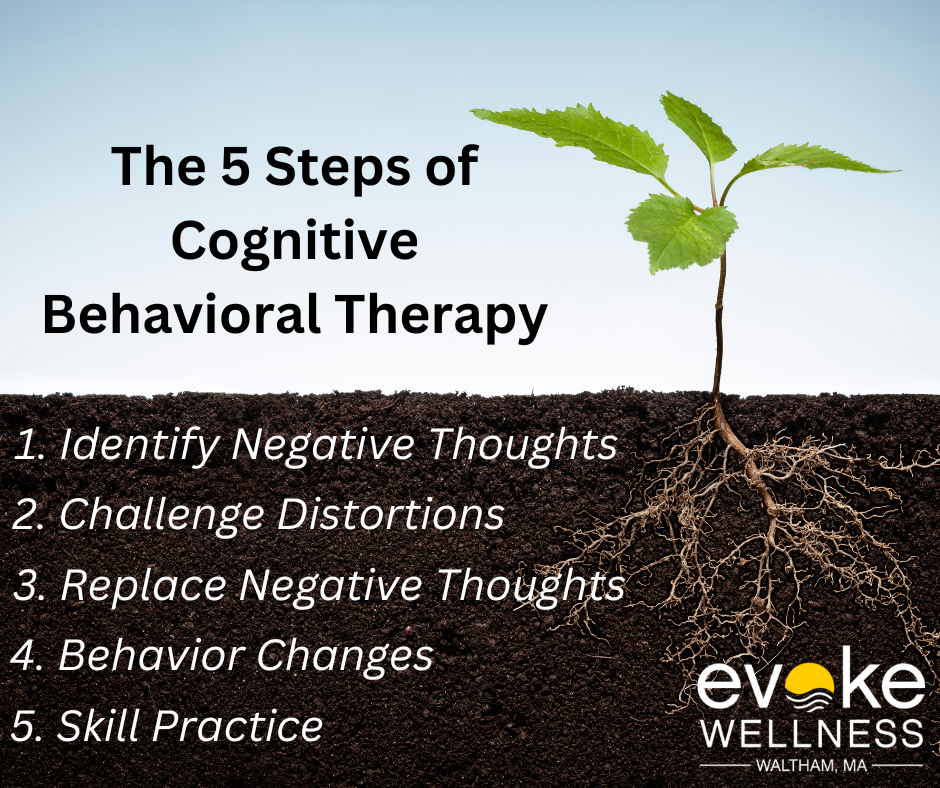Have you ever felt overwhelmed by intense emotional reactions that seem disproportionate to the situation? These triggers often stem from deep-rooted issues that can significantly impact your daily life. Fortunately, therapy offers powerful tools to uncover and heal these underlying wounds. Through approaches like cognitive behavioral therapy, dialectical behavior therapy, and trauma therapy, you can gain invaluable insights into your emotional patterns and develop healthier coping mechanisms. By embarking on this journey of self-discovery and healing, you’ll not only address your immediate concerns but also cultivate lasting emotional resilience and personal growth. Let’s explore how therapy can help you break free from the grip of emotional triggers and reclaim control of your life.
Call us at (833) 287-7223 today or reach out online.
Understanding the Power of Cognitive Behavioral Therapy (CBT)
A Focused Approach
Cognitive Behavioral Therapy (CBT) is a goal-oriented, skills-based approach that helps identify and change negative thought patterns and behaviors. By challenging irrational beliefs, CBT equips you with coping strategies to manage emotional triggers more effectively.
Addressing Deep-Rooted Issues
- CBT targets core beliefs and assumptions driving maladaptive behaviors
- Techniques like cognitive restructuring help reframe distorted thinking
- Regular homework builds resilience to overcome deep-seated issues
Proven Efficacy
Backed by extensive research, CBT has demonstrated effectiveness for various mental health conditions, including:
- Anxiety disorders
- Depression
- Trauma and PTSD
- Substance abuse
With its structured, present-focused nature, CBT empowers you to understand and overcome deep-rooted issues fueling emotional distress.
What is Cognitive Behavioral Therapy?
Cognitive behavioral therapy (CBT) is a form of psychotherapy that focuses on identifying and changing negative thought patterns and behaviors. It is based on the idea that our thoughts, feelings, and actions are interconnected.
Changing Thought Patterns
- CBT helps you recognize distorted or irrational thoughts that contribute to emotional distress.
- You learn to reframe and replace these thoughts with more balanced perspectives.
Changing Behaviors
- CBT also targets problematic behaviors that may perpetuate emotional issues.
- With your therapist’s guidance, you develop strategies to modify unhealthy behaviors.
Practical and Goal-Oriented
CBT is a structured, present-focused approach. It emphasizes practical strategies and techniques to overcome challenges and achieve specific goals. By altering thought patterns and behaviors, CBT can provide relief from various mental health issues.
The 5 Steps of Cognitive Behavioral Therapy
1. Identify Negative Thoughts
The first step is to become aware of inaccurate or negative thinking patterns. Notice when you experience distorted thoughts like catastrophizing, overgeneralizing, or self-criticism. Keeping a journal can help track these cognitive distortions.
2. Challenge Distortions
Once you recognize unhelpful thoughts, you can start challenging them. Question the evidence for and against each negative thought. Look for alternative perspectives that are more balanced and realistic.
3. Replace Negative Thoughts
After challenging distorted thinking, consciously replace negative thoughts with more positive, rational alternatives. Reframing your thoughts in a constructive way helps reduce distress.
4. Behavior Changes
CBT doesn’t just address thoughts – it also modifies behaviors. Develop healthy coping strategies like deep breathing or journaling. Gradually face situations you’ve been avoiding to build confidence.
5. Skill Practice
Consistent practice of cognitive and behavioral techniques is key. Regularly reflect on your thought patterns and behaviors to reinforce positive changes over time. Celebrate small wins to maintain motivation.
Dialectical Behavior Therapy (DBT): A Complementary Approach
Mastering Emotional Regulation
Dialectical Behavior Therapy (DBT) focuses on helping you develop skills to better regulate intense emotions and improve relationships. Its core techniques teach mindfulness, distress tolerance, emotion regulation, and interpersonal effectiveness.
A Powerful Combination
When combined with CBT, DBT provides a comprehensive approach to uncovering and healing deep-rooted issues. CBT helps identify and change negative thought patterns, while DBT equips you with tools to manage emotional triggers. Together, they offer a dynamic pathway towards lasting healing and growth.
Trauma-Focused Therapy: Healing the Wounds of the Past
The Lingering Impact of Trauma
Trauma can leave deep emotional scars that profoundly impact mental health and daily functioning. Unresolved trauma often manifests as anxiety, depression, PTSD, or unhealthy coping mechanisms. Ignoring these wounds only allows them to fester.
A Tailored Therapeutic Approach
Trauma-focused therapy provides a specialized, evidence-based approach to addressing the unique challenges of trauma survivors. These modalities, such as:
- Cognitive Processing Therapy
- Prolonged Exposure Therapy
- Eye Movement Desensitization and Reprocessing (EMDR)
…allow individuals to process traumatic memories in a safe, supportive environment. The goal is to desensitize the distressing emotions and alter unhelpful beliefs surrounding the trauma.
The Path to Healing
Through a gradual, carefully paced process, trauma-focused therapy equips individuals with coping strategies to manage overwhelming emotions. As they confront and reprocess traumatic events, survivors gain a renewed sense of power and control. This paves the way for post-traumatic growth, enabling them to reclaim their lives and thrive.
Frequently Asked Questions About Cognitive
What is cognitive behavioral therapy?
- A type of psychotherapy that helps modify unhelpful thoughts, behaviors and emotions
- Focuses on present thoughts and beliefs rather than past experiences
- Encourages identifying and changing inaccurate or negative thinking patterns
How does dialectical behavior therapy differ?
- DBT combines cognitive behavioral techniques with concepts like mindfulness
- Teaches skills to regulate intense emotions and improve relationships
- Often used for borderline personality disorder, PTSD and suicidal ideation
When is trauma therapy recommended?
- For processing past traumatic events that continue impacting the present
- EMDR and trauma-focused CBT are evidence-based trauma therapies
- Aims to reduce distressing memories and develop coping strategies
The different therapeutic approaches uncover core issues stemming from thought patterns, behaviors, past traumas or emotional dysregulation. Speaking with a professional can determine the right fit based on your unique circumstances and goals.
Conclusion
By embarking on your therapeutic journey, you’ve taken a crucial step towards understanding and healing your deep-rooted issues. Remember:
- Cognitive Behavioral Therapy helps you reshape negative thought patterns
- Dialectical Behavior Therapy equips you with vital emotional regulation skills
- Trauma therapy allows you to process and integrate difficult experiences
As you continue your work in therapy, be patient with yourself. Uncovering and addressing emotional triggers is a process, but it’s one that leads to profound personal growth and improved mental health. With dedication and the right therapeutic approach, you can break free from old patterns and create a more fulfilling life. Your future self will thank you for the courageous work you’re doing today.
Begin Your Journey with Evoke Wellness at Waltham
If you or a loved one is considering outpatient treatment, Evoke Wellness at Waltham invites you to contact us. Our compassionate team is ready to answer your questions, discuss your needs, and help you take the first steps toward recovery. At Evoke Wellness, you will find more than just a treatment program – you’ll discover a community dedicated to your wellness and success. Together, let’s embrace the journey to recovery and the promise of a new beginning. Call us at (833) 287-7223 today or reach out online.



